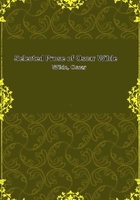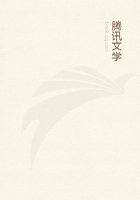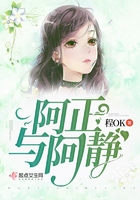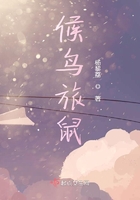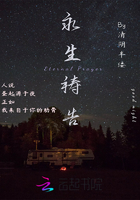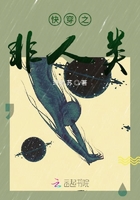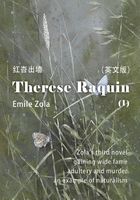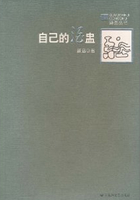The writer of this romance has been encouraged to his task by a purpose somewhat beyond that of setting out a wild tale of savage life. When he was yet a lad,--now some seventeen years ago,--fortune took him to South Africa. There he was thrown in with men who, for thirty or forty years, had been intimately acquainted with the Zulu people, with their history, their heroes, and their customs. From these he heard many tales and traditions, some of which, perhaps, are rarely told nowadays, and in time to come may cease to be told altogether. Then the Zulus were still a nation; now that nation has been destroyed, and the chief aim of its white rulers is to root out the warlike spirit for which it was remarkable, and to replace it by a spirit of peaceful progress. The Zulu military organisation, perhaps the most wonderful that the world has seen, is already a thing of the past; it perished at Ulundi. It was Chaka who invented that organisation, building it up from the smallest beginnings. When he appeared at the commencement of this century, it was as the ruler of a single small tribe; when he fell, in the year 1828, beneath the assegais of his brothers, Umhlangana and Dingaan, and of his servant, Mopo or Umbopo, as he is called also, all south-eastern Africa was at his feet, and in his march to power he had slaughtered more than a million human beings. An attempt has been made in these pages to set out the true character of this colossal genius and most evil man,--a Napoleon and a Tiberiius in one,--and also that of his brother and successor, Dingaan, so no more need be said of them here. The author's aim, moreover, has been to convey, in a narrative form, some idea of the remarkable spirit which animated these kings and their subjects, and to make accessible, in a popular shape, incidents of history which are now, for the most part, only to be found in a few scarce works of reference, rarely consulted, except by students. It will be obvious that such a task has presented difficulties, since he who undertakes it must for a time forget his civilisation, and think with the mind and speak with the voice of a Zulu of the old regime. All the horrors perpetrated by the Zulu tyrants cannot be published in this polite age of melanite and torpedoes; their details have, therefore, been suppressed. Still much remains, and those who think it wrong that massacre and fighting should be written of,--except by special correspondents,--or that the sufferings of mankind beneath one of the world's most cruel tyrannies should form the groundwork of romance, may be invited to leave this book unread. Most, indeed nearly all, of the historical incidents here recorded are substantially true. Thus, it is said that Chaka did actually kill his mother, Unandi, for the reason given, and destroy an entire tribe in the Tatiyana cleft, and that he prophesied of the coming of the white man after receiving his death wounds. Of the incident of the Missionary and the furnace of logs, it is impossible to speak so certainly. It came to the writer from the lips of an old traveller in "the Zulu"; but he cannot discover any confirmation of it. Still, these kings undoubtedly put their soldiers to many tests of equal severity. Umbopo, or Mopo, as he is named in this tale, actually lived. After he had stabbed Chaka, he rose to great eminence. Then he disappears from the scene, but it is not accurately known whether he also went "the way of the assegai," or perhaps, as is here suggested, came to live near Stanger under the name of Zweete. The fate of the two lovers at the mouth of the cave is a true Zulu tale, which has been considerably varied to suit the purposes of this romance. The late Mr. Leslie, who died in 1874, tells it in his book "Among the Zulus and Amatongas." "I heard a story the other day," he says, "which, if the power of writing fiction were possessed by me, I might have worked up into a first-class sensational novel." It is the story that has been woven into the plot of this book. To him also the writer is indebted for the artifice by which Umslopogaas obtained admission to the Swazi stronghold; it was told to Mr. Leslie by the Zulu who performed the feat and thereby won a wife.
同类推荐
热门推荐
夺心攻略:金主追妻36计
一个离婚女,一个钻石男。她眨巴着大眼睛:“你又想当金主,又不想救我爸,天下哪有这等好事?”他唇角勾笑:“除了救你爸,都可以答应你!”她气得炸毛:“滚!”这前脚才出狼窝,后脚又入虎口。他捧她上天:我要当你一辈子金主!她恨他入地:做梦!你才是害得我家破产的幕后黑手!前夫和金主,反复纠缠。亲情爱情,阴谋阳谋,真相揭开,令人诧异……她到底缺少了哪一部分的记忆?追妻无门:女boss不好惹
青涩蜕变,如今她是能独当一面的女boss,爱了冷泽聿七年,也同样花了七年时间去忘记他。以为是陌路,他突然向他表白,扬言要娶她,她只当他是脑子抽风,他的殷勤她也全都无视。他帮她查她父母的死因,赶走身边情敌,解释当初拒绝她的告别,和故意对她冷漠都是无奈之举。突然爆出她父母的死居然和冷家有丝毫联系,还莫名跳出个公爵未婚夫,扬言要与她履行婚约。峰回路转,破镜还能重圆吗? PS:我又开新文了,每逢假期必书荒,新文《有你的世界遇到爱》,喜欢我的文的朋友可以来看看,这是重生类现言,对这个题材感兴趣的一定要收藏起来。Therese Raquin(I) 红杏出墙(英文版)
Therese Raquin is a novel by French writer ?mile Zola, first published in serial form in the literary magazine L'Artiste in 1867. It was Zola's third novel. Thérèse Raquin tells the story of a young woman, unhappily married to her first cousin by an overbearing aunt, who may seem to be warmhearted but selfish in fact. Thérèse's husband, Camille, is sickly and egocentric and when the opportunity arises, Thérèse enters into a turbulent and sordidly passionate affair with one of Camille's friends, Laurent. Though it earns wide fame in the first place, the novel's adultery and murder were considered scandalous and famously described as "putrid" in a review in the newspaper Le Figaro. In his preface, Zola explains that his goal in this novel was to "study temperaments and not characters".Because of this detached and scientific approach, Thérèse Raquin is considered an example of naturalism.追妻无门:女boss不好惹
青涩蜕变,如今她是能独当一面的女boss,爱了冷泽聿七年,也同样花了七年时间去忘记他。以为是陌路,他突然向他表白,扬言要娶她,她只当他是脑子抽风,他的殷勤她也全都无视。他帮她查她父母的死因,赶走身边情敌,解释当初拒绝她的告别,和故意对她冷漠都是无奈之举。突然爆出她父母的死居然和冷家有丝毫联系,还莫名跳出个公爵未婚夫,扬言要与她履行婚约。峰回路转,破镜还能重圆吗? PS:我又开新文了,每逢假期必书荒,新文《有你的世界遇到爱》,喜欢我的文的朋友可以来看看,这是重生类现言,对这个题材感兴趣的一定要收藏起来。

